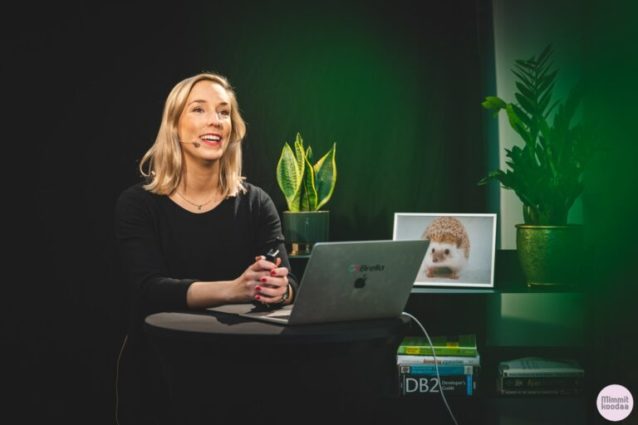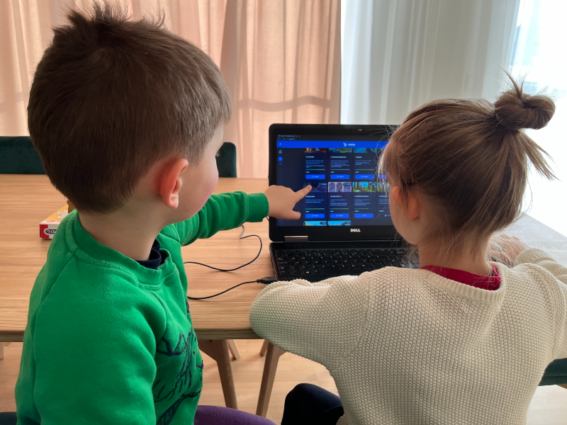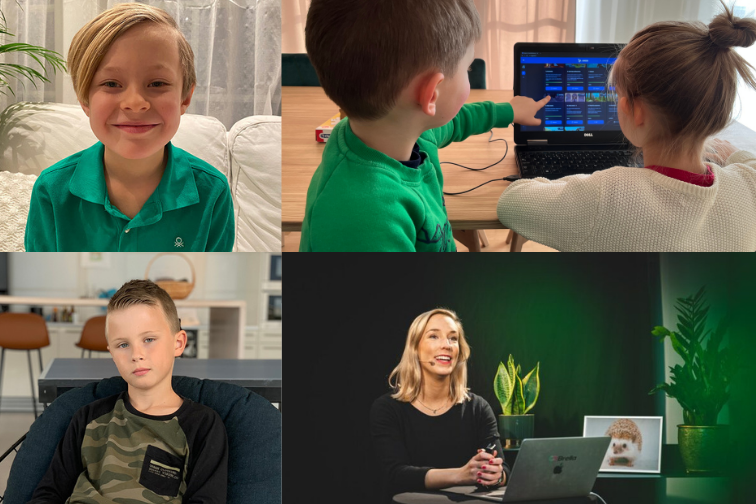STEM is an acronym for science, technology, engineering, and maths. This is generally used when talking about educational programs, subjects and careers within, for example, the IT industry.
Today is International Education Day, and we take great pride in engaging in local investments, partnerships, sponsorships, and other projects that have a positive impact on society and the environment.
Here are some of the local initiatives that we support:
Promoting informatics and computational thinking among school students of all ages
Bebras is an international problem-solving challenge that aims to promote informatics and computational thinking among school students of all ages. Computational thinking gets kids and young adults into the mindset of using a set of problem-solving skills and techniques that software engineers use to write programs and apps.
In the Bebras initiative, the participants learn the ability to break down complex tasks into simpler components, algorithm design, pattern recognition, as well as pattern generalisation and abstraction.
For one week every year, over 3 million kids around the world participate in local events. The second week of November is officially declared as the worldwide Bebras week for solving the challenges. The participants are usually supervised by teachers integrating the Bebras challenge into their teaching activities. The tasks are solved at school using mobile devices or computers.
Many countries also run activities all year round through hosting events, summer camps, teacher workshops, and running a second round of the challenge.
By getting kids and young adults interested in coding, they can start creating helpful products and share their knowledge with each other—gaining confidence along the way. In Latvia, we are a proud sponsor and organiser.
Learn more about the Bebras program.
Mimmit Koodaa

Mimmit Koodaa is Finnish for “Women Coding” and is started as a coding program to get more women interested in the IT industry, especially in the software industry.
“In the future, every company will be a software company and there will be an increasing need to use, customise, buy and develop software.”
The program aims to provide easily accessible coding workshops that are free of charge for women interested in coding. The program is open for everyone, and you don’t need any previous experience in coding.
The Mimmit Koodaa program is an important initiative to increase gender equality in the Finnish software industry and give future generations an equal opportunity to study and work in the IT industry. The program is powered by the Finnish Software and E-business Association with member companies.
So far, more than 7,000 women have participated in free, low-threshold activities such as workshops, webinars, training, and networking.
Go to the Mimmit Koodaa website to learn more about the initiative.
Investing in the younger generation of developers through Angis

Angis is a free educational video platform that helps teenagers learn to program. Each training video is created by an IT professional working at Visma Lietuva and has a task to be completed.
There are 14 episodes and 14 tasks in season one, and after completing one level, the participants can unlock the next level. After the first season, the students are able to write simple games and interactive web apps in Python—all on their own.
Through this video platform, the users gain practical knowledge and experience about variables, procedures, loops, conditions, mouse interaction and keyboard inputs. They learn how to display an image, or how to play sounds. The apps they code and create can easily be shared online with their friends.
To participate in the program, the participants only need an internet connection, a browser, and a keyboard. High-quality content, a connected story throughout the different levels, and a scoring system keep the users engaged.
This educational platform is part of a larger project: to develop more IT professionals in Lithuania and to keep the talents within the country. This will help Lithuania compete in the global market and achieve its goal of becoming a welfare state.
The Managing Director of Visma Lietuva, Mantas Urbonas, was the one who came up with the idea for Angis.net. Together with partners such as LRT, Bebras and Infobalt, Visma Lietuva was able to bring the idea to life. Urbonas hopes it will become a valuable tool both for educational institutions and for people wanting to learn to program independently:
“We want educational opportunities to not be restricted by children’s social environment, financial capabilities or place of residence. Within our company, we have many examples where the ability to understand and master a programming language does not have to depend on any social or demographic factors, and the right choice made at school can become a solid foundation for the future,” Urbonas says.
Following the success in Lithuania, there are now plans to also roll out this educational video platform in Norway and perhaps other markets at a later stage.
Read more about the Angis project.
Attracting young people into the world of Science, Technology, Engineering and Mathematics (STEM)
Hello World! is a Swedish non-profit organisation that works to increase the interest in STEM subjects among young people. The goal is to “light at least 10,000 digital stars by 2023.”
Through camps, meetups, scholarships, and other activities, kids gain the social and creative competencies that help them develop their digital skills and creativity. Everyone between the ages of 8 to 18 is welcome to participate, and there is no need for any previous experience in programming.
As a proud sponsor, Visma Sweden hosts regular workshops for kids and for young adults. Here, they can learn different things such as how to code using different coding languages like Python, and try out coding in Minecraft and 3D-studio.
To get more digital talents in the future, we believe that we need to focus on increasing the interest in IT, technology and science among young people. Not only in school but also in the kids’ spare time.
Learn more about Hello World (website content in Swedish).
Want to read more about our community investments?

